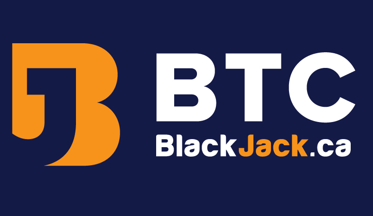Answering the Most Commonly Asked Questions about Gambling with Bitcoin and Altcoins in Canada

Gambling has been around for centuries. Even online gambling has 25+ years worth of roots in the ground. The ability to bet Bitcoin on blackjack and other casino games is a more recent phenomena, and one a lot of Canadians have questions about. It’s our goal to answer all of your questions about Bitcoin gambling, and maybe even a few you didn’t think to ask.
Choose a question from the menu below to jump right to it, or just keep scrolling to expand your knowledge on the topic.
- What is Bitcoin?
- Is Bitcoin and other Crypto Currency Legal?
- How can I get Bitcoins?
- How do I Know what my Bitcoins are Worth?
- Is online gambling even legal in Canada?
- Are Canadians able to Play Blackjack with Bitcoin?
- Do I have to Divulge Personal Information when Joining a Crypto Casino?
- How are BTC Casino Games Different?
- What does ‘Provably Fair’ Mean?
- Are Bitcoin and Altcoins Really Anonymous?
- Are Crypto Casinos Licensed and Regulated like other Online Casinos?
- How do I Know I can Trust a Curacao Licensed Bitcoin Casino?
- Why should I trust you and your website, anyway?
1. What is Bitcoin?
Bitcoin is a digital currency. Unlike fiat currencies (i.e. CA$), you cannot touch or hold it. Bitcoin, like every other crypto currency, only exists in the a virtual realm. It is, however, just as genuine and valuable as any fiat currency. Being decentralized, it is not controlled by any single government authority. As such, the use of Bitcoin can be anonymous and, due to its digital nature, transfers are generally instant, or really close to it. Learn more
2. Is Bitcoin and other crypto currency legal?
In most countries, including Canada, yes. There are a few jurisdictions where unregulated currencies like Bitcoin and altcoins are strictly forbidden, or at least heavily restricted in their use. The Canadian government defines crypto currency not as “legal tender“, but as a “digital asset“, which means you can buy, sell, and trade them, and can exchange them in barter for goods and services.
3. How can I get Bitcoins?
Bitcoin can be acquired in a number of ways. You can purchase Bitcoins on pretty much any crypto exchange. On the whole, these exchanges accept a variety of common payment methods, including debit cards, prepaid cards, PayPal, Interac, etc. You can also engage in direct trading with other people (a.k.a. peer-to-peer, or P2P), swapping one currency (fiat or digital) for another. One of the most unique things about Bitcoin (and most altcoins) is that you can mine your own tokens, rather than buying them. You can learn more about mining crypto here.
4. How do I know what my Bitcoins are worth?
There are multiple websites that continuously trace the value of Bitcoin and altcoins. A few of the most well known ones are CoinCodex, CoinDesk, and CoinMarketCap. These are great sites for tracking your favorite crypto currencies. Or, if you just need a quick glance at the price of your favorite crypto, open a Google search, type its name and press enter. Alternatively, you can ask Siri, Google, Cortana, Alexa, or any other voice assistant you may utilize. For example, “Hey, Siri, what’s the current value of Bitcoin Cash?”
5. Is online gambling even legal in Canada?
Yes! Canada is one of the least restrictive countries when it comes to internet gambling. British Columbia was among the world’s first jurisdictions to adopt iGaming regulations back in 2004, coinciding with the launch of BCLC’s PlayNow online casino. Over the years, more provinces followed suit. More importantly, however, online gambling with international websites has never been prohibited. End result – most Canadians have access to both a home-grown, locally regulated iGaming operation, as well as a highly competitive and well respected international market. Learn more
6. Are Canadians able to play blackjack with Bitcoin?
Yes! Canadians are welcome to buy, sell and trade Bitcoin and altcoins, just as they are welcome to gamble online. Thus, there’s no reason why Canadians cannot combine the two activities, enjoying blackjack and other gambling amusements with crypto currency as the means of risk. Learn more
7. Do I have to divulge personal info when joining a crypto casino?
Sometimes yes, sometimes no. There are generally two types of crypto casinos – the type that only deals in crypto payments, and the type that offer both cash and crypto payment options.
A crypto-only casino will rarely ask customers to divulge their name, address, or any other identifying information. All you need is a username and password, and a crypto wallet address. All payments come from your crypto wallet, into another crypto wallet managed by the casino. That second wallet represents your casino account balance. You can withdrawal winnings from that wallet, back to your personal crypto wallet, anytime.
A crypto+cash casino will almost always require you to register an account with complete details – name, address, date of birth, etc. This is because fiat (cash) currencies are government regulated. Thus fiat payment processors must abide by the same AML/KYC protocols as cash-only casinos. However, in most cases, when cashing out crypto, you will not be asked to give your first/last name, so the transaction itself will process anonymously.
8. How are Bitcoin casino games different?
It’s true, some crypto casino games are different than the standard variety of online casino games. For the most part, you can play the same games with crypto as you would with fiat money; blackjack, roulette, video poker, slot machines, etc. However, some games aren’t built the exact same way as games found at traditional online casinos. Some games, exclusive to crypto casinos, are built on a different type of software engine (as opposed to RNG algorithms). They use technology very similar to a crypto blockchain. In this way, the results of the game can be ‘provably fair‘, just as anonymous crypto transactions are verifiable without KYC protocol.
9. What does ‘Provably Fair’ mean?
Anyone familiar with blockchain algorithms knows that each transaction can be tracked and proven to exist. Provably fair casino games work the same way. A player can actually go back and view the randomized algorithms that produce each game’s result, proving it to be fair, unpredictable, and free of tampering.
Imagine playing blackjack at a physical casino, and after a hand of play, asking to see the deck of cards, flipping through it to ensure they’re all there. Not only that, but going back to watch a recording of that deck during its shuffling. Doing so, you could ensure the casino did not cheat or manipulate the deck in any way. Of course, no casino would permit you to do this. But that’s the best way to describe what ‘provably fair’ technology does for blockchain-based casino games.
I should point out, however, that blackjack does not (yet) exist in a ‘provably fair’ blockchain format; at least, not that we’ve been able to find (and we are always looking!)
10. Are Bitcoin and altcoins really anonymous?
Some crypto currencies really are anonymous, but Bitcoin is not one of them; not anymore it isn’t. In the early days, Bitcoin was untraceable. As more and more people questioned its security, the blockchain was updated to hold and record more information. No, you don’t have to divulge your name and address, but someone with decent tracking knowledge (including any first-world government) can find out where BTC is coming and going.
The lack of anonymity is a necessity in some ways. You could not trade Bitcoin on any SEC-approved exchange if it were 100% anonymous. The government needs to collect its taxes, you know. So, if you’re able to buy and sell a crypto on any central exchange (CEX), such as Coinbase, Gemini or Kraken, you can be certain your assets are traceable to some degree.
Only a few truly anonymous cryptos remain. They include privacy coins like Monero (XMR) and Verge (XVG). These digital tokens are 100% anonymous. Unfortunately, we don’t know of any reputable, Canadian crypto casinos that accept them at this time.
11. Are crypto casinos licensed and regulated like other online casinos?
Yes, for the most part. Online casinos that deal in crypto currencies have the same obligation to obtain a license from a regulatory authority. However, many jurisdictions refuse to license operators that deal in decentralized payment methods, because they can’t abide by the same strict KYC policies. For this reason, the vast majority of regulated crypto casinos are licensed by the government of Curacao.
The issue with Curacao licensees is that they aren’t required to fulfill the same level of player protections as other jurisdictions, like Malta and the U.K. Therefore, operators may or may not be trustworthy. To avoid problems, it becomes the customer’s responsibility to perform due diligence, determining the reputability of any crypto casino before making a deposit.
12. How do I know I can trust a Curacao licensed Bitcoin casino?
A license alone isn’t enough to invoke trust, but there are a few things you can look for. The longevity of an operation is important. The longer a site is up and running, the more likely it is to have earned a reputation, for better or worse.
You can easily determine the reputation of an online casino with a 2+ year service record by simply searching the web for genuine player reviews and experiences. It’s time consuming (we should know, we do it all the time), but it’s worth it. You can conduct your own research at casino watchdog websites like Casinomeister; a great source for legitimate player complaints.
13. Why should I trust you and your website, anyway?
We at BTC Blackjack have already done the work for you. We don’t just look into the reputation and reliability of crypto casinos. Our editors actually play the games. We’ve done so for years, for both fiat and crypto currencies. We strictly endorse reputable operations with a strong, 2+yr track record for fair gaming, quick payments, and overall customer satisfaction. Suffice it to say, if we don’t play it, we won’t recommend it.
